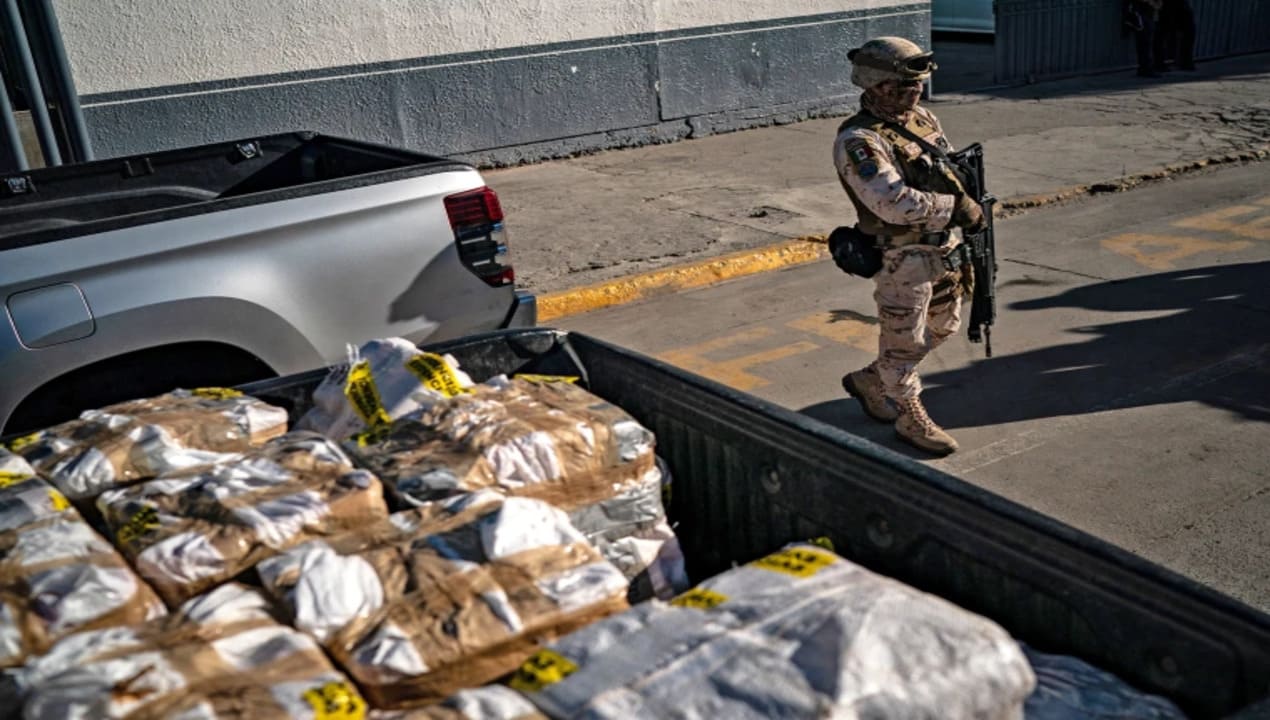
Independent Report – The Trump administration is exploring the possibility of using military force against drug cartels that have been officially designated as global terrorist organizations. U.S. officials disclosed that the Pentagon has been directed to prepare various military options to target these drug cartels. This decision came after designations earlier in the year included cartels like Tren de Aragua and the Sinaloa Cartel, alongside heightened immigration enforcement aimed at gang members.
U.S. Secretary of State Marco Rubio highlighted that the terrorist designation permits the government to deploy all elements of American power—including military and intelligence resources—against these drug cartels. He stressed the need to regard these organizations as armed terrorist groups rather than merely drug traffickers, indicating a strategic shift toward a more forceful response.
According to a report from The New York Times, President Trump has secretly signed a directive authorizing the use of military force against these cartels. Although an anonymous U.S. official confirmed this decision, they also clarified that military action does not seem imminent. Details about the type and scope of potential military operations remain unclear. Another official mentioned that the new authority could empower the U.S. Navy to conduct actions at sea, possibly including drug interdiction efforts.
Also Read : Stanford University Lays Off 363 Employees on Trump-Era Policies
The U.S. military has already increased its airborne surveillance of Mexican drug cartels to gather intelligence. This surveillance is aimed at better understanding cartel activities and determining effective ways to counter their operations. Despite these preparations, Mexican President Claudia Sheinbaum stated that no U.S. military personnel would enter Mexican territory. Sheinbaum confirmed that her government had been informed about the upcoming order but reiterated that it would not involve military operations on Mexican soil.
President Trump had previously offered to send U.S. troops into Mexico to assist in combating drug trafficking. However, Sheinbaum declined this offer in May, maintaining Mexico’s sovereignty and control over its territory. Trump has also publicly warned that the U.S. might take unilateral military action if Mexico fails to dismantle the cartels. During his first term, Trump seriously considered military intervention in Mexico, as revealed by his former Defense Secretary Mark Esper in his memoir. Esper recounted that Trump asked on at least two occasions whether the military could launch missile strikes into Mexico to destroy drug labs. Esper explained that such actions would be illegal and constitute acts of war.
This development marks a significant escalation in the U.S. government’s efforts to combat drug trafficking organizations. Designating cartels as terrorist groups broadens the range of tools available to the administration, including military options that were previously off-limits. It also signals a willingness to use more aggressive strategies beyond traditional law enforcement measures.
However, the decision raises complex legal and diplomatic questions. Military operations in or near Mexico could strain relations between the two countries and provoke strong opposition from the Mexican government. Mexico has consistently maintained that drug trafficking is a shared challenge that requires cooperation rather than unilateral military intervention. Sheinbaum’s firm stance against foreign military presence in Mexico reflects concerns about sovereignty and national security.
While the U.S. military’s increased surveillance efforts aim to disrupt cartel operations, the prospect of direct military action remains a sensitive and controversial issue. It is unclear how the administration plans to balance aggressive counter-narcotics strategies with respect for international law and diplomatic ties. The announcement of this new military authority underscores the seriousness with which the Trump administration views the threat posed by these cartels.
As the situation develops, the international community will likely watch closely for signs of any military action. The approach taken by the United States could set a precedent for how nations respond to transnational criminal organizations classified as terrorist groups. For now, the focus remains on preparing military options and gathering intelligence while navigating the complex political and legal landscape surrounding drug cartels and cross-border security.
Also Read : Trump Signals Vance as His Potential Successor in 2028